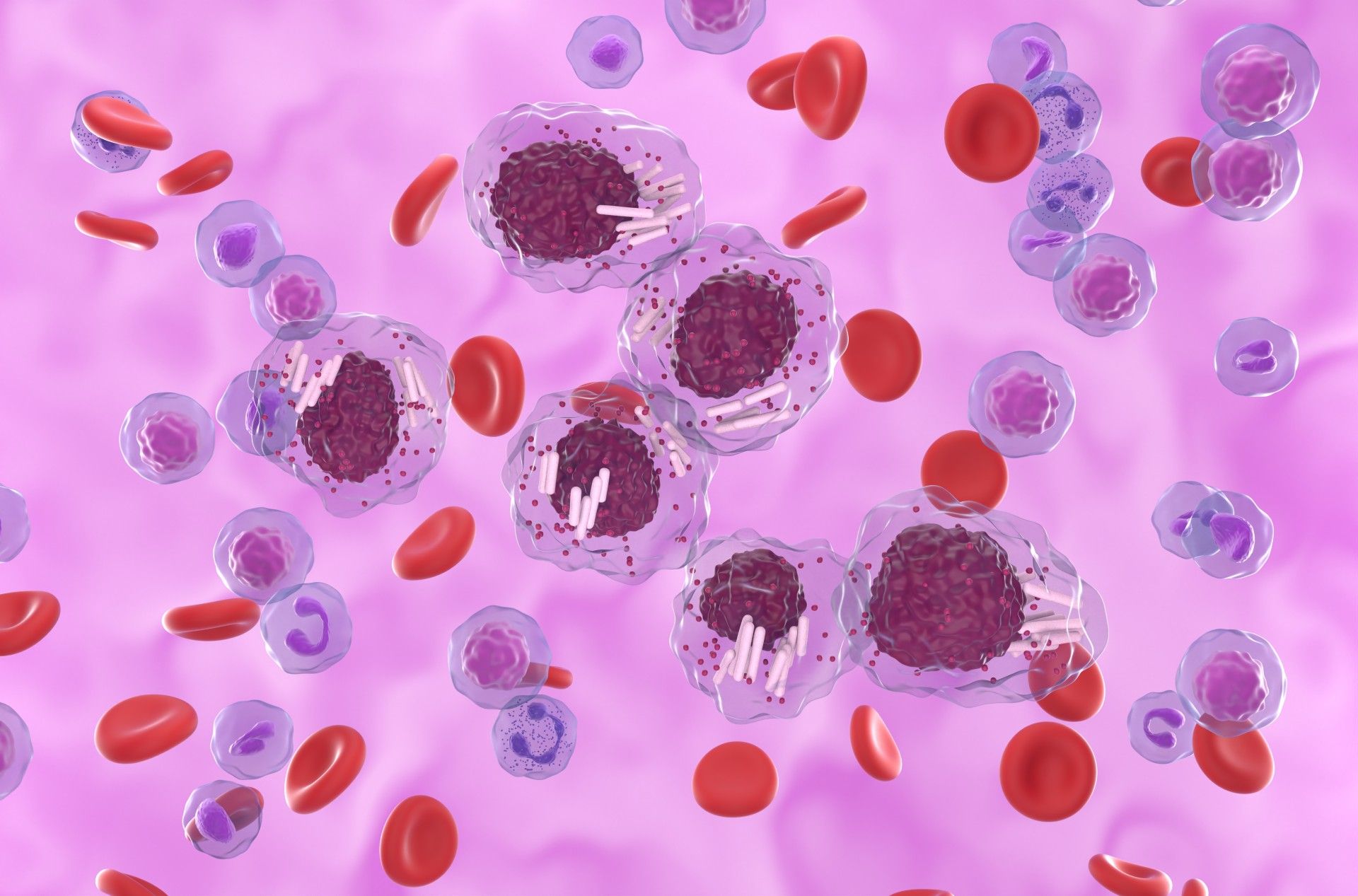- Center on Health Equity & Access
- Clinical
- Health Care Cost
- Health Care Delivery
- Insurance
- Policy
- Technology
- Value-Based Care
BTKi Resistance Mechanisms, Solutions Probed at ASH
One study found most—but not all—patients with chronic lymphocytic leukemia disease progression while taking a Bruton tyrosine kinase inhibitor (BTKi) had a key mutation linked to resistance.
For clinicians treating patients with chronic lymphocytic leukemia (CLL), Bruton tyrosine kinase inhibitors (BTKi) have been both an answer and a question-raiser. Though the therapies have transformed the CLL treatment landscape, resistance to the therapies has been a thorny scientific problem.
At this year’s American Society of Hematology (ASH) Annual Meeting & Exposition, a number of papers looked at the future of BTKi therapy in CLL, including an examination of the prevalence of resistance-associated mutations and a look at a potential new therapy in the early stages of clinical investigation.
Stefano Molica, MD, Hull University Teaching Hospitals NHS Trust in the United Kingdom, and colleagues investigated the prevalence of 2 key resistance-related genetic mutations.1 Somatic mutations in BTK or Phospholipase C-gamma 2 (PLCG2) are often identified in people with CLL following BTKi therapy. Those mutations are linked with disease progression and resistance to covalent BTKi treatment, the investigators said. Yet, Molica and colleagues said it is not clear how many of these patients develop these specific mutations.
Papers presented at ASH 2024 looked at the future of BTKi therapy in CLL. | Image credit: LASZLO – stock.adobe.com

To find out, the investigators searched the scientific literature to find studies in which patients with CLL were assessed for BTK or PLCG2 mutations upon disease progression. They identified a total of 724 patients spread across 13 cohorts. Of those, the large majority (86.3%) had relapsed or refractory (R/R) disease, while the remaining patients were treatment-naive. Only about 8% of patients discontinued their BTKi due to an adverse event or other reason.
A meta-analysis showed that a slight majority (52%; 95% CI, 39-64) had BTK mutations, though the authors said there was significant heterogeneity across studies. A subsequent analysis that compared patients on the first-generation inhibitor ibrutinib (Imbruvica) with patients on second-generation therapies acalabrutinib (Calquence) and zanubrutinib (Brukinsa) found both groups had similar prevalence of BTK mutations compared with the overall cohort: 53% and 51%, respectively.
Among the 620 patients for whom PLCG2 analyses were performed, 86% had R/R CLL, 14% were treatment-naive, and 9.2% discontinued therapy due to adverse events or other reasons. Overall, just 11% had PLCG2 mutations (95% CI, 7-17). Patients treated with ibrutinib had a PLCG2 mutation rate of 13%, compared to 9% in patients treated with a second-generation inhibitor. Investigators also noted that PLCG2 mutations—but not BTK mutations—were positively correlated with TP53 mutational burden and time of exposure to BTKi's.
Molica and colleagues said their findings confirm that BTK and PLCG2 mutations are common, but they also noted that more than one-third of patients had neither mutation. That suggests there are additional mechanisms of BTKi resistance which have not yet been investigated, they said.
“Clinically, the assessment of BTK/PLCG2 mutational profiles has not demonstrated utility in guiding the selection of subsequent therapies for CLL,” they concluded. “Indeed, venetoclax-based therapies or non-covalent BTKis may be equally effective options for patients with BTK/PLCG2 mutations progressing on covalent BTKis.”
Resistance was also at the center of another BTKi-related paper at ASH. Jennifer A. Woyach, MD, hematologist-oncologist and professor at The Ohio State University, and colleagues delved into the question of T474 gatekeeper mutations.2 Second-site T474 gatekeeper mutations are common in people who experience resistance to the non-covalent BTKi therapy, they noted. One possible solution for these patients is LP-168 (rocbrutinib), a new novel, dual-binding covalent and non-covalent BTKi.
At ASH, Woyach and colleagues presented new phase 1 safety and efficacy results from a cohort of 10 patients with R/R CLL and gatekeeper mutations. The patients ranged in age from 52 to 75 and had a median of 2 prior therapies. All had previously received a covalent BTKi, and 4 had previously been given a non-covalent BTKi.
The investigators found that doses up to 300 mg per day were well-tolerated, and none of the patients experienced dose-limiting toxicities, though 1 patient had a dose interruption. Meanwhile, 1 patient experienced constipation while another had fatigue, each with a grade 3 or higher. Four patients experienced serious adverse events, including scrotal infection, pneumonia, middle ear inflammation, and altered state of consciousness. No atrial fibrillation/flutter was reported, and no patients had grade 3 or above hypertension.
The gatekeeper-mutation cohort is part of a larger, 50-patient phase 1a study, and the investigators said preliminary efficacy data has been encouraging.
“Rocbrutinib could potentially fill an unmet need in CLL for [patients] with resistant CLL,” Woyach and colleagues said. “Ongoing and future clinical trials will focus on dose optimization and combination studies.”
References
- Molica S, Allsup D, Giannarelli D. Prevalence of BTK and PLCG2 Mutations in BTK Inhibitor Treated CLL Patients Who Experience Progression. Presented at: 66th ASH Annual Meeting & Exposition; December 7-10, 2024; San Diego, CA. Abstract 4630.
- Woyach JA, Brander DM, Hu B, et al. LP-168 (Rocbrutinib), a Novel Covalent and Non-Covalent Next-Generation Inhibitor of Bruton’s Tyrosine Kinase: Updates on the Phase 1 Trial and Initial Results of the CLL Gatekeeper Mutation Cohort. Presented at: 66th ASH Annual Meeting & Exposition; December 7-10, 2024; San Diego, CA. Abstract 4622.
